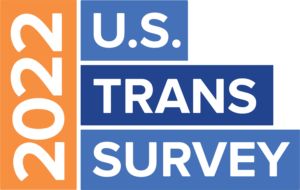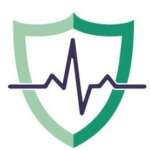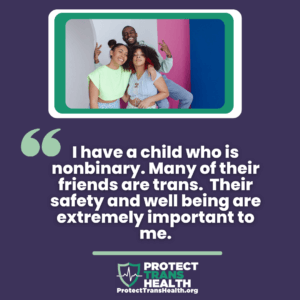Take Action!
Each month we will be sharing some practical action steps you can take to improve the lives of trans and nonbinary individuals. Although the WiTEACH project is geared toward connecting Wisconsin-based providers and trans communities, to help collaboratively build a stronger, more resilient trans community, these action steps will be relevant for people in all states.
March 2023 - Cookies!
 What’s happening: Girl Scouts have been so openly supporting trans scouts that they often show up on anti-trans boycott lists. You can have fun, support trans and nonbinary kids, and eat sugary goodies all at once by buying Girl Scout cookies from trans and non-binary scouts.
What’s happening: Girl Scouts have been so openly supporting trans scouts that they often show up on anti-trans boycott lists. You can have fun, support trans and nonbinary kids, and eat sugary goodies all at once by buying Girl Scout cookies from trans and non-binary scouts.
Erin Reed is a trans activist (you can find her work at https://erininthemorn.substack.com/) who has compiled a list of around two dozen scouts of various ages who will ship you cookies or arrange to have them delivered to you. Adding extra fun to the process: each girl or non-binary scout has set both a numeric goal for her/their sales and a concrete goal. G, for instance, wants to help save the “chubby unicorn” (northern white rhino) at San Diego Zoo, and Phoenix is trying to raise funds for a 2024 trip to Puerto Rico. Lily is raising funds to cover dues and camp fees for fellow scouts. Take a moment to read the entries and vote with your “pocketbook.” (Note that you may need to patch some things together; some scouts are sold out of some cookie types, and they are ALL sold out of the new Raspberry Rally. Maybe next year.
What you can do:
Go to https://erininthemorn.substack.com/p/consider-getting-girl-scout-cookies to read the scouts’ pitches and make any purchases.
Timeline: As soon as possible (Last day is not advertised, but may be March 12).
January 2023 - Waukesha School Board: Parental Rights and Transparency
What’s happening: Waukesha School Board is considering a parental rights and transparency resolution that includes these provisions:
“Student personal and gender identity: The District celebrates the diversity of our Waukesha community and expects that students feel safe and welcome in the school environment. Staff will cooperate with parents to ensure students are referred to in ways that represent the student’s identity.
- District staff will not be permitted to call a minor student by names, nicknames or pronouns other than commonly shortened or abbreviated full names (for example, William to “Bill” or Jennifer to “Jen”) or pronouns consistent with the student’s biological sex, without written permission from the parent.
- Students will use shared bathroom and locker room facilities according to their biological sex. Students who request exceptions for shared facility use, shall have a plan on file with the school district that is determined by the Superintendent not to introduce an excess of safety or privacy risks for other District students, and that is approved by the parent.
- Students will participate in athletics programs consistent with their biological sex and the rules of the Wisconsin Interscholastic Athletics Association (WIAA). Any consideration of alternate placement due to a student’s gender identity, must comply with WIAA policy and be approved by the Board.”
This policy is likely to be approved at the School Board’s January 11 meeting. Nevertheless, it would be good to go on record explaining why these policies are so damaging. Both b) and c) above could require families with trans children in Waukesha schools to “out” those children and (re-)negotiate their child’s school conditions, whether or not those families had previously chosen to “out” their children to school officials. Depending on what bathroom and sports agreements are made, the policies may also force the child to be “outed” to the rest of the student body. The policy would also forcibly “out” trans children who have good reason to believe they are at risk if their parents learn of their gender identity, but who may not understand the risks they run revealing their identity to teachers, staff, or peers.
What you can do: Contact the members of Waukesha’s Board of Education, collectively and/or individually, to explain how this policy will hurt students and families.
Waukesha Board of Education
222 Maple Avenue
Waukesha, WI 53186
262-970-1003 phone
262-970-1020 fax
(Individual members’ contact information available at https://wi02216052.schoolwires.net/Page/193 )
More information: https://go.boarddocs.com/wi/wauk/Board.nsf/files/CMTPT466184A/$file/Resolution%201-11-23.pdf
Timeline: As soon as possible
November 2022 - Transgender Day of Remembrance 2022 and Preparing to Help Someone in Crisis
What’s happening: Milwaukee is honoring the Transgender Day of Remembrance on Friday, November 18, 2022.
Tragically, this year Milwaukee lost three trans people to fatal violence. That makes this year’s Transgender Day of Remembrance particularly meaningful.
What you can do: Come out and help us make community together:
Friday, November 18, 2022
7:00 p.m.
Zao MKE Church
2319 E. Kenwood Boulevard, Milwaukee
Keynote Speaker: Dee Dee Watters
Timeline: November 18, 2022
Plus –
What’s happening: There are some drawbacks for trans and nonbinary users of the newly-announced 988 suicide hotline. Here are some alternative ways to help someone in crisis:
What you can do:
- Add alternative crisis line numbers to your phone contacts, so you always have that at hand if they are needed:
O BlackLine: 1 (800) 604-5841
O Trans Lifeline: (877) 565-8860
O Trevor Lifeline: (LGBT youth) 1 (866) 488-7386
O RAINN (sexual assault) (800) 656-4673
- Make a safety plan for yourself or with someone in need. https://www.mysafetyplan.org/ can walk you through what’s needed.
- Find out what happens when 911 is called in your state. Do they ever call 911 even if the person on the line doesn’t want that?
- Become a certified peer support specialist or mental health first aider. FORGE expects to sponsor more mental health first aider trainings in the future, or check out https://www.mentalhealthfirstaid.org/
- Get trained to carry naloxone for emergency use in cases of opiate overdose. Your local drugstore may offer training.
- Practice self-care. https://www.healthline.com/health/self-care-checklist
Timeline: There’s no time like the present!
October 2022 - Make Sure We're Counted!

What’s happening:
The U.S. Transgender Study (USTS) 2022 is almost here!
In the absence of large-scale random surveys (especially federally-sponsored national ones like the census or the national crime victimization survey), trans people, families, researchers, service providers, and others have had to rely on statistics generated by “convenience sample studies,” which basically means “studying whoever you can find.” The biggest such study by far has been the 2015 USTS, to which nearly 28,000 people contributed their data. FORGE has used USTS data in hundreds of our webinars, publications, social media postings, and grant proposals. We use it more often than any other single resource (minus our computers and phones, of course!).
Seven years is a long time in trans years; a great deal has changed. The U.S. Transgender Study is being re-run in 2022, with a goal of attracting many more respondents than the last time around. The survey is for “all trans people ages 16 years and older, including binary and nonbinary trans identities, living in the United States, a U.S. territory, or on a U.S. military base…. The survey is open to trans people at any stage of their lives, journey, or transition.” The survey is available in both English and Spanish.
What you can do:
- If you are trans, take the survey! The survey opens on October 19, 2022. Before then, you can go to https://www.ustranssurvey.org/about to sign up to be notified by email when the survey is available.
- Encourage every trans and nonbinary person you know to take the survey. There are even opportunities to encourage people you don’t know. Go to https://secure.everyaction.com/TwgGA-HvCk6aB0BGlSyUVw2 to learn about or sign up for volunteer opportunities.
- Be creative about incentivizing survey-taking. Because this survey has to meet so many needs, it’s long; its sponsor, the National Center for Transgender Equality, recommends people set aside at least an hour to finish it (although it doesn’t have to be completed in one sitting). There will be a random drawing that will award cash to three winners, but you can most likely do better. Encourage people to bring the laptops for a survey party, hold your own random drawing for your group or community, or come up with an even better idea to create some excitement.
- Learn more at https://www.ustranssurvey.org/about
Timeline: Survey Opens October 19, 2022
September 2022 – Protect Trans Health

What’s happening:
The Affordable Care Act (“Obamacare”) included a Section 1557 that:
- Requires providers and insurers receiving federal funds not to deny or restrict access to health care based on sex, including gender identity and sexual orientation;
- Prohibits health providers and insurance companies receiving federal funds from discriminating on the basis of sex, including anti-transgender discrimination; and
- Further prohibits discrimination based on race, national origin, age, and disability.
These provisions were re-interpreted by the past Administration to remove transgender and other protections. The Biden Administration has now proposed regulations to reinstate and clarify the protections. This new regulation has the potential to ensure that the Administration can enforce trans people’s right to be protected from discrimination and harm while seeking health care services. Proposed regulations like this one don’t create new protections that weren’t already there or change the law, but they clarify the law’s intent, educate people about their rights, and help insurance companies, health care providers, and government agencies understand how to follow the law.
What you can do:
 1. Go to https://protecttranshealth.org/ and share your trans health story in the bottom left box of the homepage. This can be either a negative/discriminatory story or, just as important, a positive story. You will have the choice whether to agree to let your story go into the public record and, if you do, whether you want to do so anonymously.
1. Go to https://protecttranshealth.org/ and share your trans health story in the bottom left box of the homepage. This can be either a negative/discriminatory story or, just as important, a positive story. You will have the choice whether to agree to let your story go into the public record and, if you do, whether you want to do so anonymously.
2. If you are a service provider who has experienced or witnessed LGBTQI discrimination in health, go to https://bit.ly/ProtectLGBTQIHealth to submit your story.
3. If you contribute to social media, go to https://docs.google.com/document/d/1n99BImvy1g-88hPjYelG_H9P4_GzmS9o/edit?emci=1ccc20b4-772f-ed11-ae83-281878b83d8a&emdi=a158199a-832f-ed11-ae83-281878b83d8a&ceid=12191219 to access the Protect Trans Health Social Media Kit. This contains not only shareable graphics, sample tweets and Facebook posts, but also additional information and messaging tips.
Deadline for action: October 2, 2022
